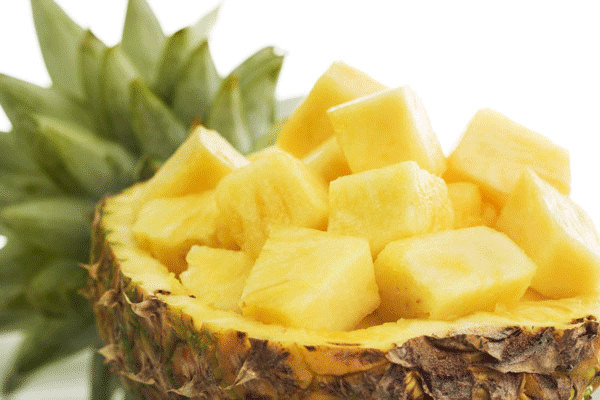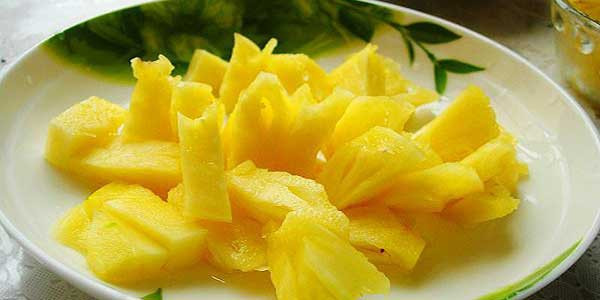Things to absolutely avoid when eating pineapple to not harm your health
Pineapple is rich in vitamins, minerals, and nutrients necessary for the body, but it will be a dangerous food to your health if you use it incorrectly.

Regarding chemical composition, in 100g of pineapple we have 90.5g of water, 0.8g of protein, 1g of organic acid, 6.5g of glucid, 15mg of calcium, 17mg of phosphorus, 0.5mg of iron, 24mg of vitamin C and other vitamins such as vitamin B1, B2, PP, carotene, etc.
There has been research showing that pineapple enzymes have the ability to treat heart disease because they can dissolve blood clots that lead to heart attacks. People with high blood pressure should eat pineapple to avoid the risk of blood clots that lead to stroke.
In addition, eating pineapple every day is good for the digestive system, boosts the immune system, fights arthritis,... and is an antioxidant, helping women have beautiful, smooth skin.
However, when eating pineapple, you must be very careful because pineapple can cause poisoning or a very dangerous allergy, in severe cases it can lead to death.
The cause of pineapple allergy and poisoning is a poisonous fungus Candida tropicalis commonly found on moist ground. This fungus thrives in the summer, coinciding with the pineapple ripening season.
Because the pineapple plant grows low, the pineapple fruit lies close to the ground, and the pineapple skin is rough and the eyes are deep in the fruit, making it easier for mushrooms to stick.
During harvesting and transporting, pineapples are often piled on the ground. If any fruit is bruised, waterlogged, or rotten, Candida fungus can penetrate and grow inside, causing some people who eat it to become sick.
Things to avoid when eating pineapple

Do not eat crushed or rotten pineapple.
Pineapple is a shrub that grows close to the ground, and its rough skin makes it a home for fungi. When the pineapple is crushed, the sap seeps out, and the fungi grow, penetrating deep into the fruit, causing poisoning to those who eat it. Common symptoms of poisoning include fatigue, discomfort, itching, and hives.
Do not eat directly when still green
Eating or drinking unripe pineapple juice is dangerous. The pineapple is toxic at this stage and can easily cause severe diarrhea and vomiting. Eating too much pineapple core can cause clumps of fiber to form in the intestines.
Avoid eating pineapple when hungry
Pineapple is a juicy, cool fruit, very suitable for summer. However, if you eat it when hungry, it will make your body feel nauseous and uncomfortable. The reason is because the organic substances and bromelain in pineapple strongly affect the lining of the stomach and intestines.
How to eat pineapple safely
- Choose to buy fresh, intact pineapples that are not bruised.
- Peel off the pineapple skin and eyes.
- If eaten directly (raw), you need to cut the pineapple into small pieces and soak it in light salt water for about 10 minutes to remove poisonous mushrooms and inhibit protein-degrading enzymes so that the eater does not have a burning tongue.
- People with sensitive skin, allergies and children should eat fried or cooked pineapple to reduce the possibility of allergies.
- Do not eat pineapple when hungry because organic acids and bromelain strongly affect the stomach and intestines, causing nausea and discomfort.
- People with bleeding disorders or at risk of bleeding (nosebleeds, dengue fever, large wounds, women with hemorrhage...) should not eat pineapple.








